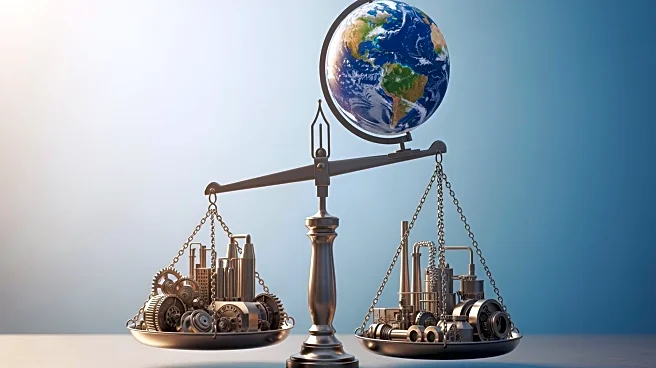What's Happening?
Import duties, also known as customs duties or tariffs, are taxes imposed by governments on goods entering a country. These duties are calculated based on the value of the goods, including costs such as shipping
and insurance. The United States uses the Harmonized Tariff Schedule (HTS) to determine the applicable rates, which vary depending on the product's classification and the country of origin. Import duties serve multiple purposes, including generating revenue for the government, protecting domestic industries from foreign competition, and controlling the flow of specific goods. The U.S. has established different duty rates for countries based on their trade relations status, with special rates for developing countries or those eligible for international trade programs.
Why It's Important?
Import duties play a crucial role in shaping the U.S. economy by influencing the cost of foreign goods. Higher duties can make imported goods more expensive, encouraging consumers to buy domestically produced products, thereby supporting local industries and jobs. Conversely, lower duties can reduce consumer prices by allowing access to cheaper foreign goods. The strategic use of import duties can protect nascent or strategic industries, fostering economic diversification and reducing dependency on imports. However, they can also lead to higher consumer prices and production costs, impacting the overall economy.
What's Next?
The future of U.S. import duties will likely be influenced by ongoing trade negotiations and international agreements. Changes in trade policies, such as the implementation of new free trade agreements, could alter duty rates and affect the flow of goods. Businesses and consumers should stay informed about potential changes in duty rates and trade policies to anticipate their impact on prices and supply chains.
Beyond the Headlines
The imposition of import duties raises ethical and legal considerations, particularly regarding fair trade practices and compliance with international trade laws. The balance between protecting domestic industries and fostering global trade relations is a complex issue that requires careful consideration by policymakers. Long-term shifts in trade policies could lead to changes in global supply chains and economic power dynamics.









